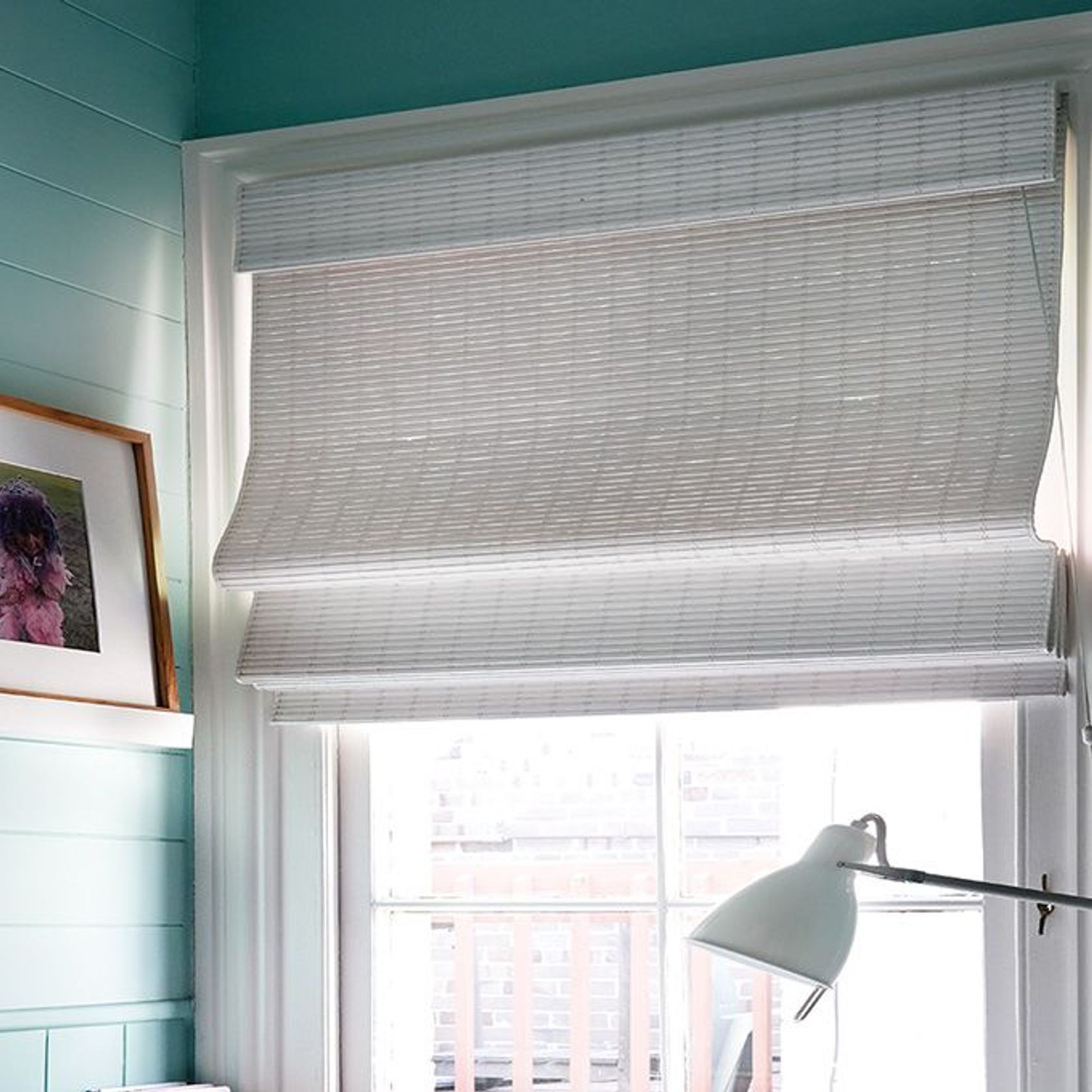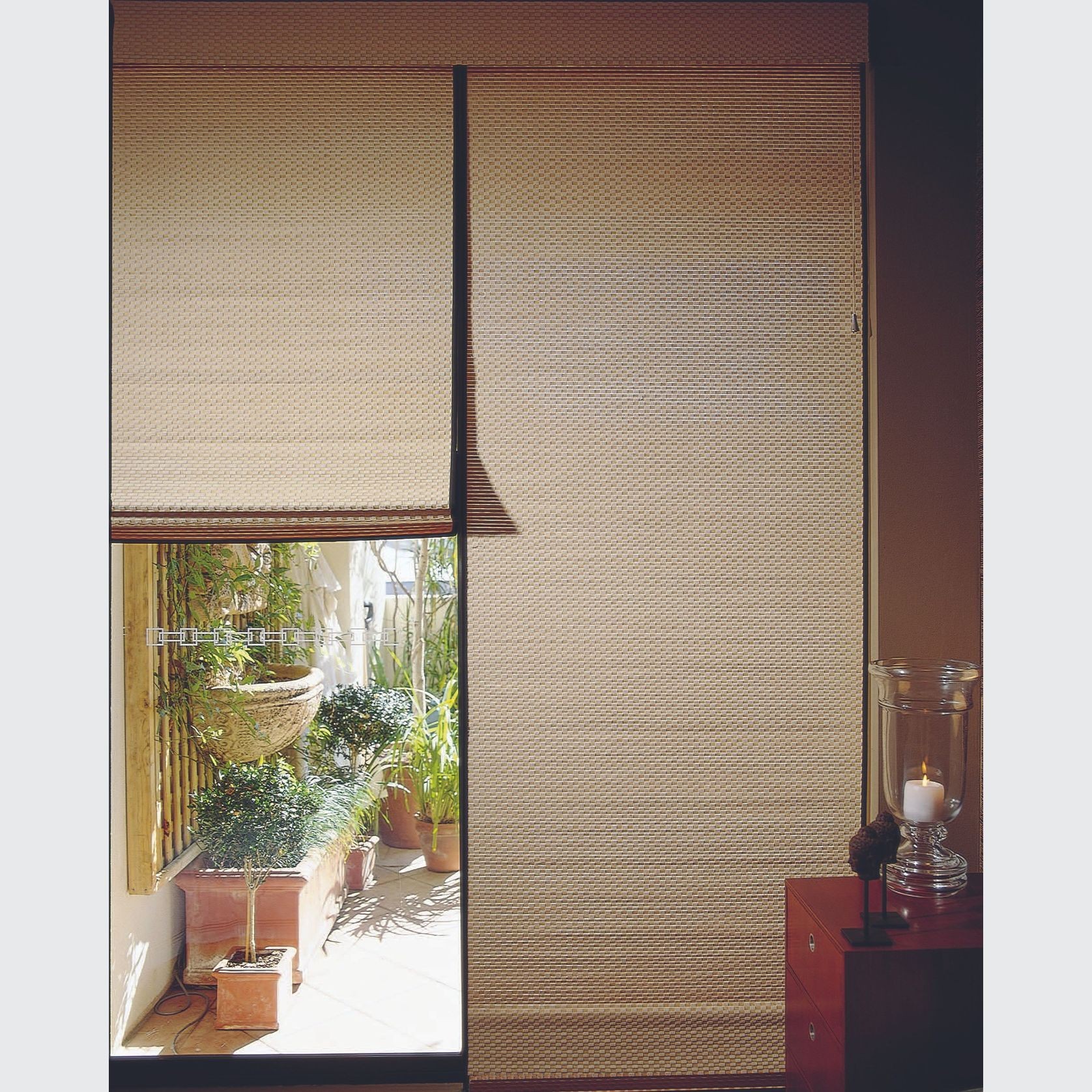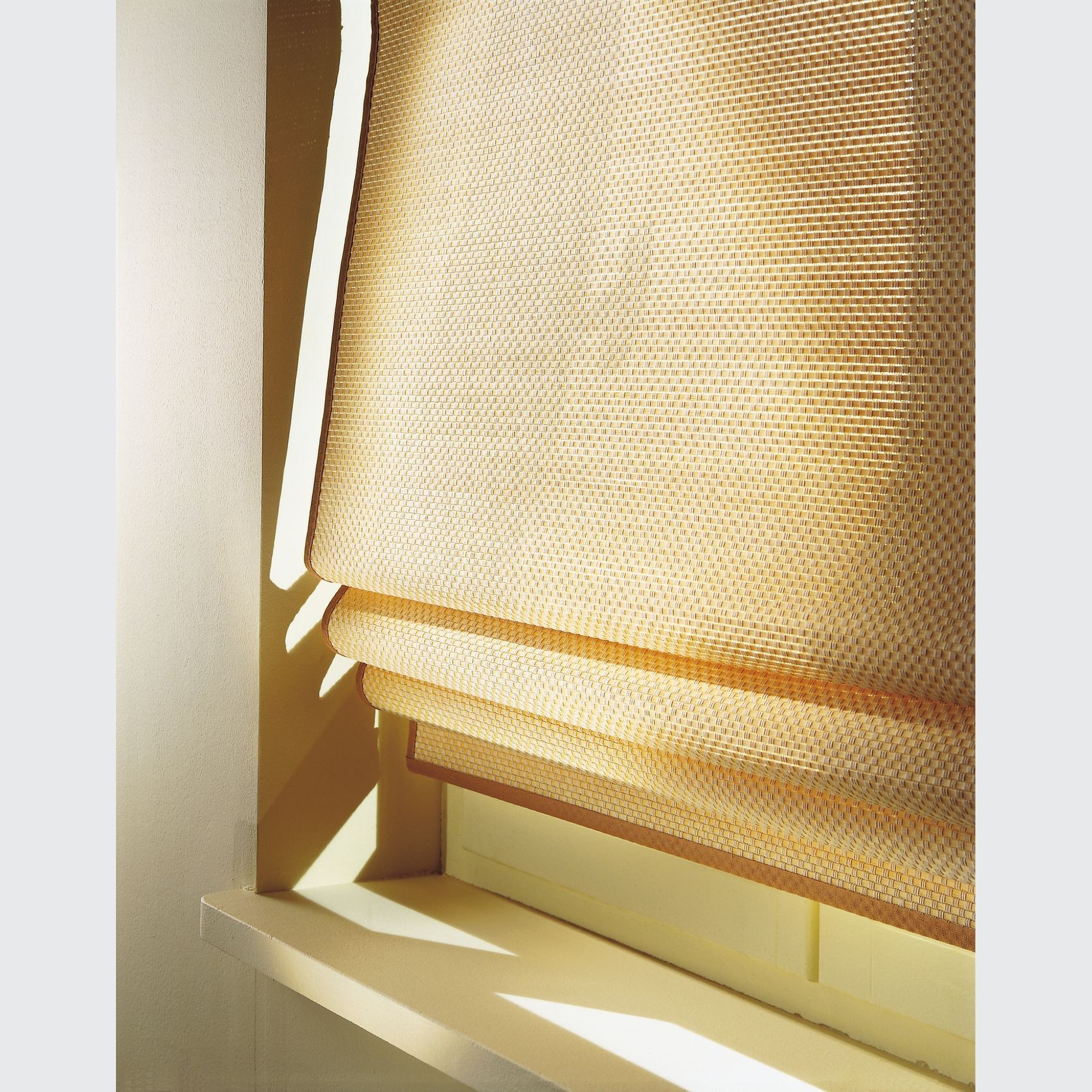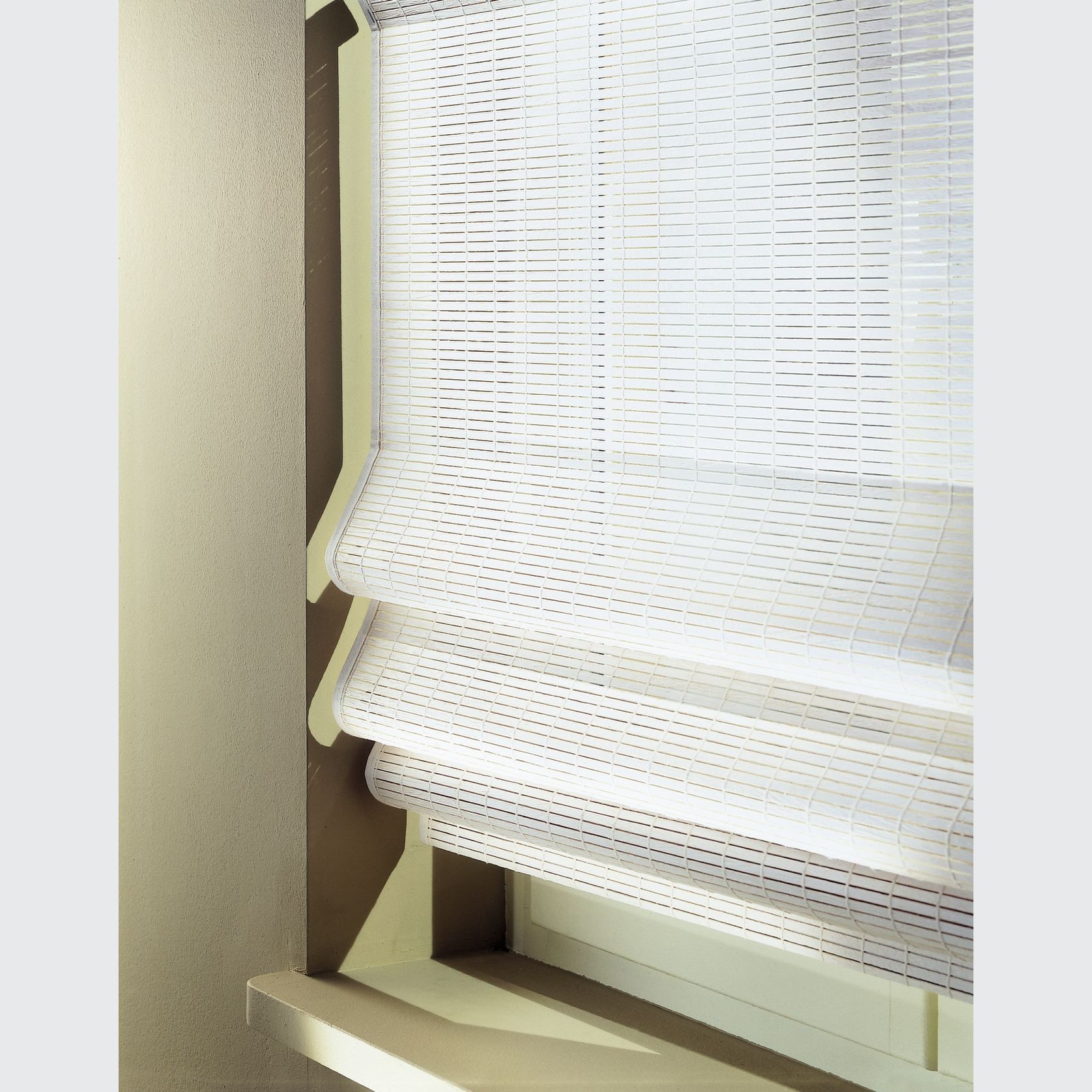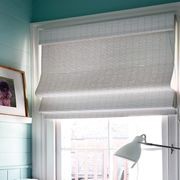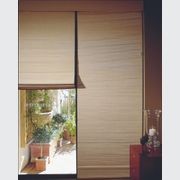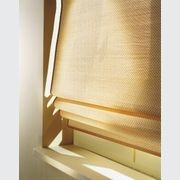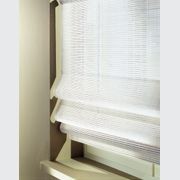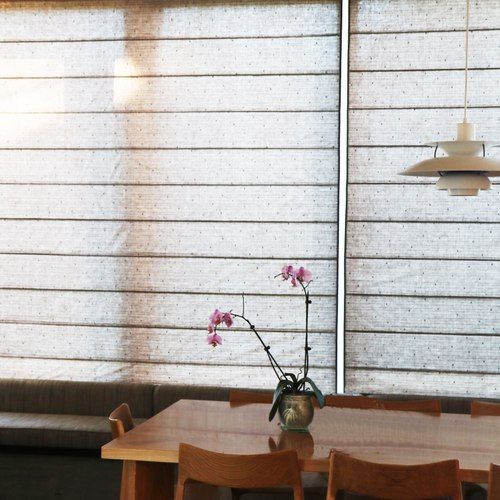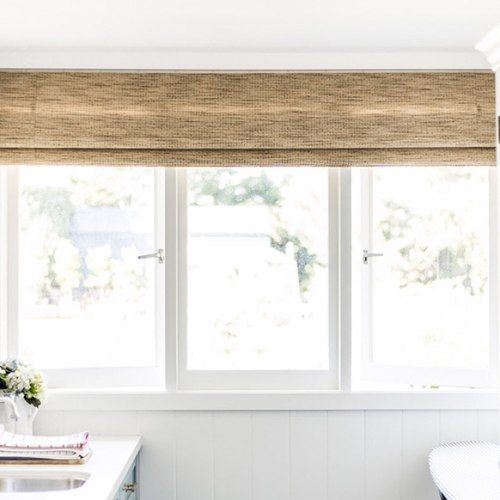Le Blinde French Woven Timber Blinds can be made into roman blinds, rollup blinds, or moving panels/panel blinds. They can be used in their beautiful natural state or stained to your requirements or even custom painted.
These French woven timbers add a timeless element to any decor. A bias bind is added to the edges of woven timber blinds to give them a finish that will last the test of time. Naturally woven timber can be made in manual cord operated, chain operated or motorised.
Enhance your residential or commercial space with the selection of Le Blinde French Woven Timber Blinds by Peter Meyer.
These blinds are exclusively available, in New Zealand, from Artisan.
- CategoryWoven Roman Blinds
- RangeBlinds
- Maximum size - 2500mm wide x 3000mm drop. All prefinished fabrics have a maximum 2400mm width
- Styles - romans, rollups, curtains, and moving panels
- Privacy - four weaves are designed to give privacy. All others give daytime privacy while allowing you to see out. This reverses at night
- Weaves - 13 weaves in total. 5 natural [ beech ], 4 mocha [ mahog ], 4 Le Finished [ 2 Le Washe + 1 stain + 1 paint colour ]
- Finishes - natural, clear lacquer, custom painted or stained
- Thermal properties - timber is one of nature’s best insulators. UV protection will vary proportionally to the openness of weave as will insulation and light transmission
- Motorisation - romans rollups and moving panels
- Warranty - 5 Years
OTHER PRODUCTS
IN THIS RANGE
About the
Seller
- Products listed
- Recent Responsiveness
80%
Usually responds within
24 hours on weekdays
With 40 years of experience in the luxury flooring and interior finishes market, Artisan are the best people to help you make the right decision on product, texture and colour. Our design consultants will listen carefully to your design brief and source the very best product fit for purpose and within budget. Artisan hand-pick natural, sustainable raw materials such as wool, timber, coir and sisal to manufacture products that are durable and retain their looks with age. Through this authentic approach, coupled with a refined and timeless design aesthetic, we skillfully create welcoming interiors, contributing beauty, warmth and comfort.
Ethical Production.
Our handmade rugs are all ethically produced, we work with our suppliers to ensure no child labour is used in our production and that fair and ethical working conditions are maintained.
To provide an essence of how rugs are produced by many of our suppliers, we would like to recite the incredibly apt words of world famous rug designer, Lila Valaden.
"The art of carpet weaving is one of the oldest cultural achievements of many nations. The complete process is based on an old tradition allowing nomads a self- sufficient and sustainable way of life. Contributing to maintaining this age-old craft, whilst supporting local communities, families and education. For us, sustainability is not just a word. It sits at the heart of how we trade and produce carpets around the world."
Natural Materials.
Our natural fibre flooring is imported from exotic destinations around the world. Sisal, extracted from the Agave Sisalana plant, is grown in Brazil, Mexico, China and Africa. Jute is made from the root of giant corchorus plants grown in Bangladesh. Seagrass is collected from the paddy fields and riverbanks of China and Vietnam. And Coir, a fibre hand removed from the coconut husk, is grown on the swaying palms of India.
Once Sisal, Seagrass, and Jute are harvested, the fibres are graded for length and quality. Then after colouring and drying in the sun, they are spun into yarn or cords suitable for weaving. Coir, the toughest fibre, is first softened in seawater lagoons and pounded into a soft filament, ready for spinning into yarns. The spools of yarn are then woven on jacquard looms, a slow delicate process, best for producing the beautiful and intricate patterns and designs. Some Sisal is exported to Belgium and the Netherlands for weaving, but the majority of the other yarns are woven in the counties where it is grown. A natural rubber latex backing is applied for dimensional stability Strength and Performance.
- ArchiPro Member since2015
- LocationView all locations (+2)
- More information
